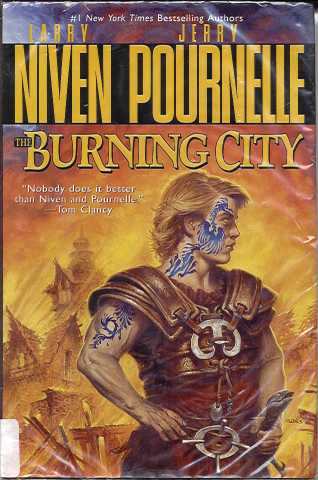Burning City and Burning Tower Book Review

By Larry Niven and Jerry Pournelle

I avoided these particular books for quite some time due to their unusual premise: Los Angeles in an age of magic. I shouldn't have waited; these books are everything I like about Niven and Pournelle, a big cast of characters in a believable world, and something interesting to think about.
14,000 years ago, the world was magical. However, magic is a finite and dwindling resource. Atlantis has recently sunk, victim of an acute mana shortage. The Burning City experiences periodic conflagrations when the magic that keeps fire from burning inside buildings lapses.
While the Burning City does share a geographical location and some characteristics with the Los Angeles that will follow it 14,000 years later, it also has some unusual differences. It is ruled by Lords of a legal bent who employ highly trained hoplites as an army. The Lords are assisted by their allies the Lordkin, wild and unruly barbarians who support themselves by a random and personal form of taxation known as gathering. Anything a Lordkin can take from the conquered Kinless they can keep. The only thing that keeps the Lordkin in check is their propensity to kill each other.
We learn about the Burning City through the life of Whandall, a Lordkin boy of unusual curiousity and drive. His voyage of discovery is ours as well. This gives Burning City an impressive scope, nearly half a lifetime. We get to share everything in Whandall's life, and see a strange new [old?] world through his eyes.
Burning Tower is a very different book. Despite being a sequel and sharing a number of characters, this book is less about exploring an unusual political arrangement and more about an adventure and a coming of age story. It is extended in space rather than time, moving all the way to Chaco Canyon in New Mexico. This book shares the conceit of Burning City, giving us the backstory behind the legends. It also shares a love of place, in this case my place, so I have a fondness for these books simply for that.
I enjoyed each book in its own way, even though Niven and Pournelle did grind an axe or two. Who knew that Atlantis' doom was excessive taxation?
Comments ()